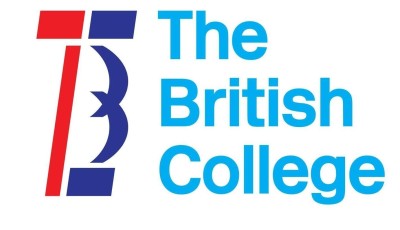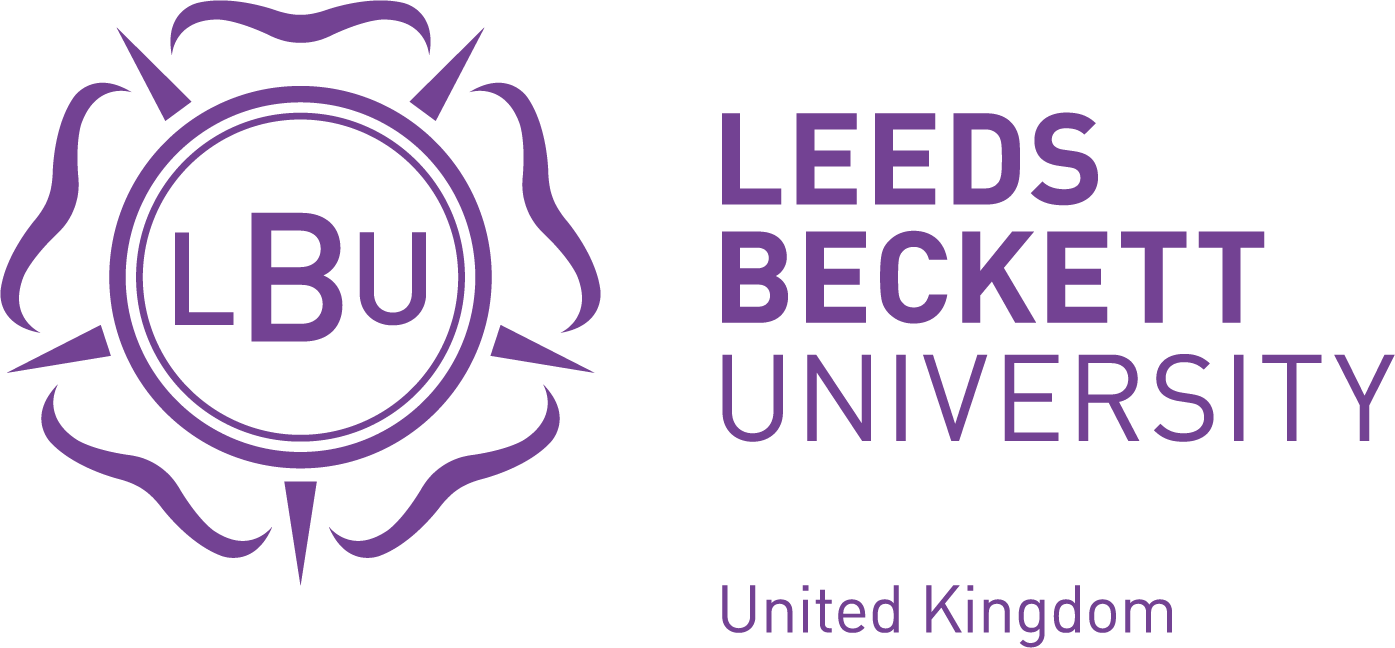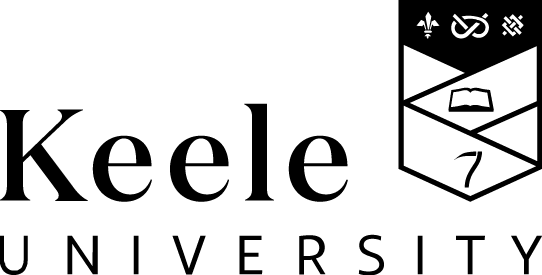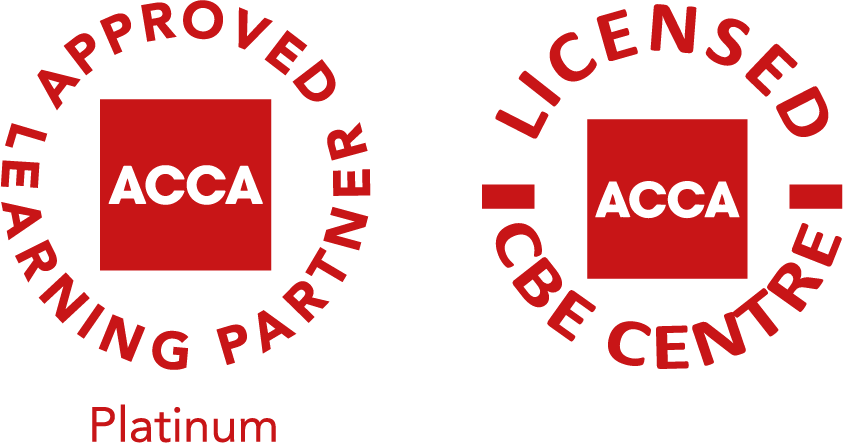Executive MBA in Nepal: Exploring EMBA Programs, Courses, Fees, and Career Opportunities (2025)

Are you a professional in Nepal looking to elevate your career, enhance your leadership capabilities, and make a significant impact in the business world?
The term "EMBA" might have crossed your path, sparking curiosity about what it entails and how it differs from other postgraduate management degrees. In today's rapidly evolving global and local business landscape, continuous learning is not just an advantage; it’s a necessity. An Executive Master of Business Administration, or EMBA, is specifically designed for experienced professionals aiming to ascend to higher leadership roles without pausing their careers.
This comprehensive guide serves as your ultimate resource for understanding what EMBA is all about, especially in the context of Nepal. We will explore everything from its core definition to the specific EMBA course offerings, flexible EMBA study options, and the exciting career paths it unlocks. Whether you are in Kathmandu, Pokhara, Biratnagar, Butwal, Chitwan, Itahari, or Dharan, this guide will provide crucial insights into how an Executive MBA in Nepal can be the pivotal step in your professional journey. Let's delve into the world of executive education and discover why an EMBA might be the perfect fit for your ambitions in 2025.
What is EMBA? Executive MBA Programs Right for me?
The journey to executive leadership often requires a strategic blend of experience and advanced education. This is precisely where the Executive Master of Business Administration, or EMBA, comes into play. If you've ever wondered, "What does EMBA stand for?" It stands for Executive Master of Business Administration. This postgraduate degree is tailored specifically for working professionals who aspire to enhance their managerial and leadership skills while continuing their full-time careers. Unlike traditional MBA programs, an EMBA acknowledges and leverages the significant professional experience its students bring to the classroom, creating a unique and dynamic learning environment.
Definition and Core Concepts
An EMBA is essentially an MBA program with an "executive" focus. It provides a holistic business education, encompassing core subjects like finance, marketing, operations, strategy, and human resources, but at a more advanced and applied level. The curriculum assumes a foundational understanding of business principles, diving deeper into strategic decision-making, global business challenges, and innovative leadership. The goal is to equip current and future executives with the tools to navigate complex organisational issues, drive growth, and lead change effectively. It’s a rigorous EMBA course designed for immediate application in the workplace.
Who Should Consider an EMBA Program
An EMBA is ideal for individuals who are:
- Mid-to-Senior Level Professionals: Those with significant work experience (typically 2-10+ years), especially in managerial or supervisory roles, who are ready to take on greater responsibilities.
- Aspiring Leaders: Individuals who aim for C-suite positions (CEO, COO, CFO), directorships, or senior management roles.
- Career Accelerators: Professionals looking to fast-track their career progression, enhance their strategic capabilities, and increase their earning potential without interrupting their current employment.
- Entrepreneurs: Business owners or aspiring entrepreneurs who want to formalize their business knowledge, improve strategic planning, and scale their ventures.
- Change Agents: Those who want to lead organisational transformation, innovate, and adapt to evolving market dynamics.
- Global Thinkers: Individuals seeking to understand international business environments and gain a global perspective in their leadership roles.
If you recognize yourself in these descriptions, an Executive MBA in Nepal could be your next strategic career move.

EMBA Study Options and Program Types in Nepal
For busy professionals in Nepal, finding an EMBA study option that aligns with their demanding schedules is crucial. Institutions recognize this need and offer various formats to ensure accessibility and flexibility, making an Executive MBA in Nepal a practical choice for career advancement.
Full-time vs Part-time EMBA Programs
While some full-time MBA programs exist, the very nature of an EMBA generally implies a part-time structure designed for working professionals.
- Full-time EMBA (less common): In some global contexts, a highly accelerated EMBA might be offered full-time, but this is rare in Nepal due to the target audience. These would be very intensive.
- Part-time EMBA: This is the standard format for an Executive MBA in Nepal. It allows students to continue their full-time employment while attending classes outside regular working hours. This might involve evening classes, weekend sessions, or a combination. The British College's EMBA, for example, is explicitly a "Weekend MBA (Executive)," tailored for this very purpose.
Weekend EMBA Programs
Weekend EMBA programs are highly popular in Nepal, particularly in Kathmandu, due to their convenience. This format condenses coursework into intensive sessions held primarily on Fridays (evening), Saturdays (mid-day 7 am to 12 Pm), and sometimes Sundays (Morning).
- Convenience: Minimizes disruption to weekday work commitments, making it feasible for professionals with demanding jobs.
- Focused Learning: Allows for deep immersion during class days, followed by periods for self-study and project work during the week.
- Networking: Fosters strong bonds within the cohort, as students spend focused time together during weekends, leading to excellent networking opportunities.
The British College's EMBA course at its core adopts this weekend-focused approach, with classes strategically scheduled on Friday evenings, Saturday mornings and afternoons, and additional sessions on every second Sunday.
Campus Facilities and Learning Environment
The learning environment plays a significant role in the EMBA study experience. Top colleges invest in state-of-the-art facilities and foster a conducive atmosphere.
- Modern Classrooms: Equipped with technology for engaging presentations and collaborative learning.
- Libraries and Resources: Access to extensive physical and digital libraries, research databases, and online learning platforms.
- Networking Spaces: Areas designed for informal interactions, group projects, and networking among peers and faculty.
- Experienced Faculty: A mix of academic experts and industry practitioners who bring real-world insights and practical experience to the EMBA course. The British College, for example, prides itself on having a faculty with both academic expertise and industry experience, often including international faculty.
Choosing a college with excellent facilities and a vibrant learning environment can significantly enhance your Executive MBA in Nepal journey.

EMBA Syllabus and Course Structure
The EMBA syllabus is meticulously designed to provide a comprehensive and practical management education, focusing on strategic leadership and real-world application. Understanding the EMBA course structure is key to appreciating the depth of learning involved.
Core Subjects and Curriculum Overview
While specific course titles may vary by institution, the core of an Executive MBA in Nepal program covers essential business functions from a strategic perspective. At The British College, the University Programme, affiliated with Leeds Beckett University, UK, features a robust EMBA syllabus structured around key areas:
- Strategic Management: Learn frameworks for formulating and executing organisational strategies to achieve long-term objectives and competitive advantage.
- Financial Analysis: Gain in-depth skills in financial modeling, investment appraisal, risk management, and interpreting financial data for strategic decisions.
- Marketing Dynamics: Explore advanced marketing strategies, consumer behavior, market research, and digital marketing trends in a global context.
- Operations and Logistics Management: Focus on optimizing business processes, supply chains, and logistical operations for enhanced efficiency.
- Leading and Managing Innovation: Understand how to foster a culture of innovation and effectively manage organisational change in dynamic environments.
- Entrepreneurship and Risk Management: Develop an entrepreneurial mindset, covering business model innovation, venture creation, and strategies for identifying and mitigating business risks.
- Contemporary Issues in Business and Leadership: Delve into current global and local business challenges, ethical considerations, and evolving leadership paradigms.
These modules cumulatively build the essential knowledge base for success in the advanced stages of an Executive MBA in Nepal.
Specialization Areas Available
Many EMBA programs offer elective modules or specialization areas, allowing students to tailor their EMBA study to their career aspirations or industry needs. At The British College, indicative option modules include:
- Marketing Dynamics: For those looking to deepen their expertise in advanced marketing strategies.
- Cross-Cultural Human Resource Management: Essential for understanding and managing diverse workforces in a globalized business environment.
- (Other electives like Forensic Accounting may also be available, providing flexibility within the EMBA course.)
These specializations allow you to customize your learning and gain focused expertise in areas that align with your professional goals.
Practical Learning and Case Studies
A distinguishing feature of an Executive MBA in Nepal is its emphasis on practical, applied learning. The EMBA study often involves:
- Case Studies: Analyzing real-world business scenarios to develop problem-solving and decision-making skills.
- Business Simulations: Engaging in interactive simulations that mimic real market conditions, allowing students to test strategies in a risk-free environment.
- Group Projects: Collaborating with diverse peers on projects that simulate real business challenges, fostering teamwork and practical application.
- Guest Lectures: Learning from industry leaders and experts who share their insights and experiences, bridging the gap between academia and the business world.
Capstone Projects and Research Components
A significant component of most EMBA programs, including The British College's, is a capstone project or thesis. At TBC, this is embodied in the Consultancy Project, which runs throughout the program.
- Consultancy Project: This is a substantial, credit-bearing project where students apply their learning to a real organisational issue of strategic level. Students work independently and manage a client-consultant relationship, providing practical solutions to current business challenges. This continuous, hands-on experience is a cornerstone of the TBC EMBA and distinguishes the EMBA course by its direct relevance to professional practice.
This holistic EMBA syllabus ensures that graduates are not only theoretically sound but also possess the practical acumen to lead effectively from day one.

EMBA Jobs and Career Opportunities
An Executive MBA in Nepal is a powerful catalyst for significant career advancement, enabling professionals to transition into more influential roles and achieve substantial growth in their earning potential. Analyzing the scope of EMBA jobs helps in visualizing your future career path.
Executive-Level Positions After EMBA
Graduates of an Executive MBA in Nepal are uniquely equipped for a wide array of senior positions across various sectors. These include:
- Senior Management Positions: Moving from mid-level roles to positions like Senior Manager, Department Head, or Assistant Director.
- Director-Level Roles: Assuming leadership positions such as Director of Operations, Marketing Director, Finance Director, or Human Resources Director.
- C-Suite Executive Roles: Over time, an EMBA can be a direct path towards becoming a Chief Executive Officer (CEO), Chief Operating Officer (COO), or Chief Financial Officer (CFO), particularly within smaller to mid-sized enterprises or specific divisions of larger corporations.
- Strategic Planning Roles: Taking on responsibilities in corporate strategy, business development, and organisational transformation.
Industry Sectors for EMBA Graduates
The versatility of an EMBA course prepares graduates for leadership roles in a diverse range of industries, both within Nepal and globally. Key sectors include:
- Banking and Financial Services: Leading teams in investment banking, corporate finance, or financial advisory.
- Information Technology and Telecommunications: Guiding innovation and strategic growth in tech companies.
- Manufacturing and Production: Optimizing operations and supply chains for efficiency and competitiveness.
- Hospitality and Tourism: Leading strategic development in Nepal's burgeoning tourism sector.
- Consulting Services: Providing expert strategic advice to various organisations.
- FMCG (Fast-Moving Consumer Goods): Driving marketing and operational excellence in consumer goods companies.
- Non-Governmental Organisations (NGOs) and Development Sector: Applying business principles to manage projects and lead initiatives with social impact.
- Government and Public Administration: Contributing to policy formulation and efficient public service delivery.
Salary Expectations and Career Growth
A significant motivation for pursuing an EMBA is the potential for increased salary and long-term financial benefits. While specific figures vary based on industry, company size, and individual performance, EMBA graduates typically experience a notable increase in their compensation package upon completion. This return on investment (ROI) often includes higher base salaries, bonuses, and better benefits, reflecting their elevated skill set and strategic value to an organisation. The EMBA study equips you to drive profitability, innovate, and lead successful teams, directly contributing to organisational growth and, consequently, your own financial advancement.
Entrepreneurship Opportunities
Many Executive MBA in Nepal graduates leverage their enhanced strategic and business development skills to launch their own ventures, innovate within existing family businesses, or expand their entrepreneurial endeavors. The EMBA course provides a comprehensive understanding of market analysis, financial planning, and risk management, essential for successful entrepreneurship in vibrant cities like Kathmandu and other growing economic hubs across Nepal.
EMBA Cost and Fee Structure in Nepal
Understanding the financial commitment is a crucial step when considering an Executive MBA in Nepal. While the cost represents a significant investment, it is often viewed as a gateway to substantial career growth and increased earning potential, making it a valuable long-term investment in your future.
Tuition Fees Breakdown
Fees for an Executive MBA in Nepal vary considerably between government-affiliated universities and private institutions, and also depend on the specific program's duration and international affiliations.
- Government-affiliated Universities (e.g., under Tribhuvan University, Pokhara University, Purbanchal University): These institutions generally offer more affordable fee structures. For a typical 2-year program, the total fees might range from approximately NPR 4,00,000 to NPR 7,00,000.
- Private Universities and Internationally Affiliated Colleges (e.g., Kathmandu University, The British College): Fees at these institutions tend to be higher due to specialized curricula, international faculty, modern facilities, and global affiliations. For a program like the TBC EMBA, which awards a British degree from Leeds Beckett University, UK, To know about the the total cost for the 2-year program you can talk to our experts;
Additional Costs and Hidden Expenses
Beyond tuition fees, candidates for an Executive MBA in Nepal should budget for additional costs:
- Application and Admission Fees: Non-refundable fees for submitting applications and taking entrance exams.
- Examination and Thesis Submission Fees: Costs associated with taking module exams and submitting your final project or thesis.
- Study Materials: Books, case studies, software licenses, and other learning resources.
- Accommodation and Transport: If you need to relocate or commute for weekend classes, these costs should be factored in, especially in cities like Kathmandu.
- International Study Tours (if applicable): Some programs may include optional or mandatory international trips, which incur additional costs.
Considering these additional expenses gives a realistic picture of the total investment in your EMBA study.

Scholarship and Financial Aid Options
While an EMBA is an investment, several avenues can help finance your EMBA study:
- University-Specific Scholarships: Some institutions offer merit-based scholarships for candidates with exceptional academic and professional backgrounds, or need-based aid for those with demonstrated financial constraints. These are often competitive.
- Employer Sponsorship: Many companies recognise the value of an EMBA for their high-potential employees and may offer partial or full sponsorship, often with a commitment to continued employment post-graduation. This is a common and highly beneficial way to pursue an Executive MBA in Nepal.
- Education Loans: Major commercial banks in Nepal offer education loans for postgraduate studies, typically at competitive interest rates.
- Private Foundation & Corporate Scholarships: Occasionally, external organisations, industry associations, or corporate entities might provide scholarships to individuals pursuing executive education.
Thorough research and early application for financial aid are always recommended to ease the financial burden of your EMBA course.
Return on Investment Analysis
The significant investment in an Executive MBA in Nepal is generally justified by its potential return. The increased earning potential, accelerated career growth into executive roles, and expanded professional network often lead to a substantial return on investment within a few years post-graduation. The skills and strategic insights gained during your EMBA study directly translate into greater value for your organisation and, consequently, for your own career trajectory.
Frequently Asked Questions About EMBA
For many aspiring leaders, certain questions consistently arise when considering an Executive MBA in Nepal. Here, we address some common queries to provide clarity and help you make an informed decision about your EMBA study.
What is the duration of EMBA programs?
The duration of Executive MBA programs typically ranges from 1.5 to 2 years. While most traditional EMBAs are 2-year programs, some institutions, especially those with international affiliations like The British College, offer accelerated pathways that can be completed in approximately 18 months for eligible direct entry candidates. This flexibility is designed to accommodate the busy schedules of working professionals.
Can I work while studying EMBA?
Yes, absolutely. The core design philosophy of an Executive MBA is to allow professionals to continue their full-time employment while pursuing their degree. Programs like the TBC EMBA utilise flexible schedules, such as weekend classes (Friday evenings, Saturdays, and alternate Sundays), evening sessions, or modular formats, specifically to enable this work-study balance. This is a key advantage, as it means you don't have to pause your career progression to gain a higher qualification.
What are the career benefits of EMBA?
The career benefits of an Executive MBA in Nepal are substantial and far-reaching. Graduates are typically positioned for:
- Accelerated Career Growth: Rapid progression into senior management, director, and even C-suite roles.
- Increased Earning Potential: A significant rise in salary and overall compensation packages due to enhanced skills and strategic value.
- Expanded Network: Access to a high-caliber network of accomplished peers, experienced faculty, and influential alumni.
- Enhanced Leadership Skills: Development of strategic thinking, decision-making, and organisational leadership abilities.
- New Industry Opportunities: The versatility of the EMBA course opens doors to various sectors and new entrepreneurial ventures.
How much does EMBA cost in Nepal?
The cost of an Executive MBA in Nepal varies depending on the institution and its affiliations. Fees can range from approximately NPR 4,00,000 to NPR 7,00,000 for government-affiliated universities and from NPR 7,00,000 to NPR 12,00,000 or more for private colleges, especially those with international affiliations like The British College's program from Leeds Beckett University, UK. It's an investment, but one often justified by the significant return in career advancement and increased earning potential. Additional costs for application, exams, and materials should also be considered.
Conclusion
An Executive MBA in Nepal represents a strategic, transformative journey for ambitious professionals ready to take their careers to the next level. Whether you are seeking to formalize your vast experience, pivot into a new leadership role, or drive innovation within your organisation, an EMBA provides the comprehensive EMBA course and practical skills necessary for success.
Programs like the TBC EMBA offer an unparalleled opportunity to gain a globally recognised British degree while benefiting from a flexible EMBA study schedule tailored for working executives. From understanding what is EMBA to exploring the detailed EMBA course, diverse EMBA study options, this guide has provided you with the essential knowledge to make an informed decision. The path to executive leadership is challenging yet immensely rewarding, and an Executive MBA is your definitive step towards achieving that pinnacle of professional success in 2025 and beyond.










